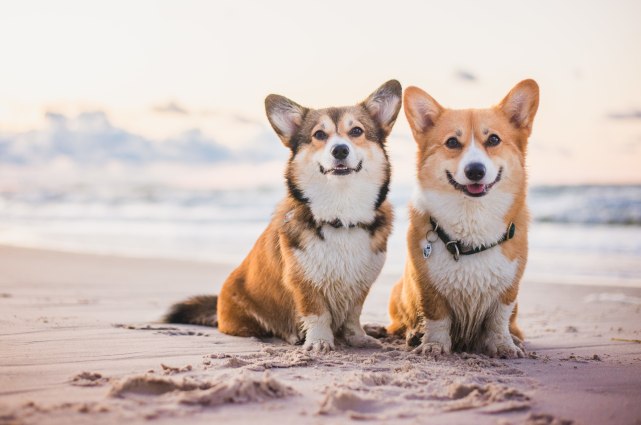What is Heat Stroke?
The medical term for heat stroke is heat prostration or hyperthermia, which means an increase in core body temperature caused by environmental conditions. Normal body temperature for a dog is around 99-102.5 degrees farenheit. If a dog’s body temperature gets above 105, this becomes life –threatening.
What are the Most Common Reasons that we See Heat Stroke?
- When dogs are left in hot cars
- When dogs are strenuously exercising (hiking, running, or hunting)
- When dogs are left outside for an extended amount of time in the hot and humid weather

How Do I Know if My Dog Has Heat Stroke?
Almost every body system is affected by heat stroke. Did you know that dogs don’t sweat like humans do? The way they dissipate heat is by panting or breathing rapidly. Sometimes this mechanism just isn’t enough to deal with all the extra heat built up and heat stroke occurs.
Here are some signs to look for with heat stroke:
- excessive panting
- staggering
- acting off, as if in a stupor
- very rapid heart beat
- bright red, blue, or dark tongue and/or gums
- vomiting
- bloody diarrhea
If you notice ANY of these signs, take your pet to a veterinarian immediately. This is a true veterinary emergency. Time is of the essence here guys! While in transport to the vet, try to cool your pet down with cool, (NOT ice cold) wet towels on their abdomen, paws and neck. Don’t leave the towels on your pet, as it will only act as an insulating blanket to keep the warmth in. Also, make sure NOT to use super cold water. This will shock the system and cause vasoconstriction, which actually will keep your dog warmer.
What You Can Do to Prevent Heat Stroke:
- Never leave a dog alone in a car, not even in the shade with the windows cracked: Studies have shown that even on cooler days, the temperature inside a car can rise by as much as 40 degrees within one hour
- Some breeds of dogs are actually more predisposed to heat stroke. The most prone breeds, due to their special airways, are what I affectionately call the “squishy-faced” ones (aka brachycephalic!), such as English and French bulldogs, Boston terriers, boxers, Cavalier King Charles spaniels, Shih Tzus and mastiffs. If you own one of these, be EXTRA careful about the situations you put them in. What may not cause heat stroke in a different dog, may cause heat stroke in your squishy-faced dog.
- If you must leave your dog outside for hours in the heat, be sure to provide plenty of shade and water. A baby pool for a dog left outside may help, as they can cool themselves down by jumping in! There are also special cooling vests for dogs available that can help.
- There are some conditions that may predispose a dog to heat stroke, including being overweight and heart conditions. Be sure to keep your yearly checkup with your veterinarian to address chronic diseases early on.
- Remember that working dogs (or even professional squirrel-chasing dogs, like my own) may get so focused and into their job that they forget to rest. They may also get so excited in a new environment while hunting or hiking that they won’t want take a break. Remember that it is up to you as an owner to help your dog know when to stop and cool down!
